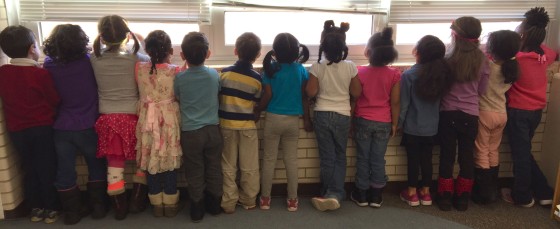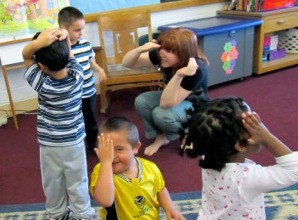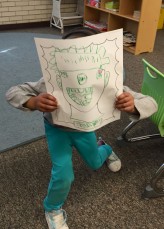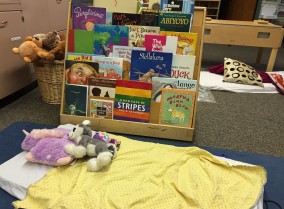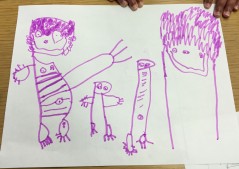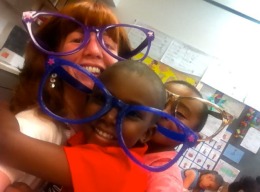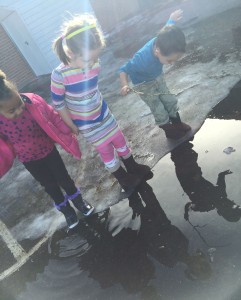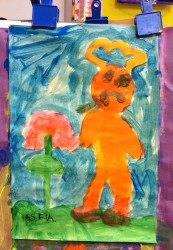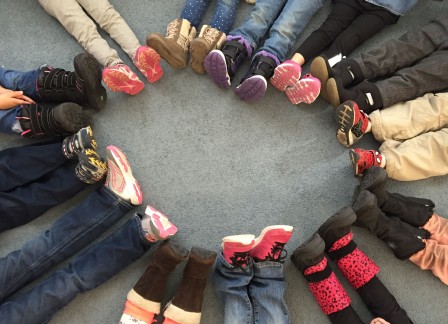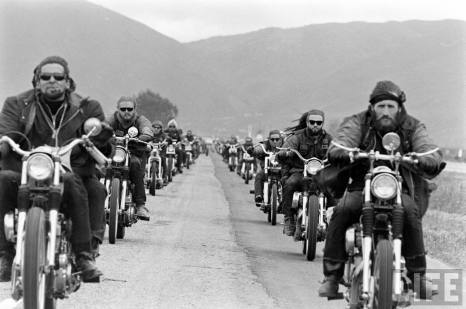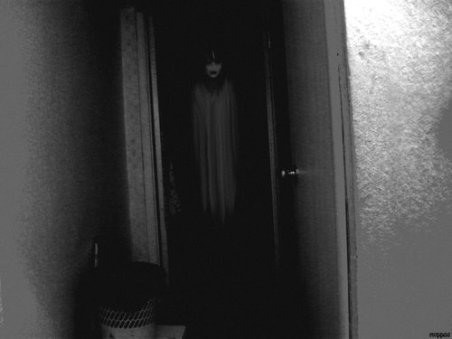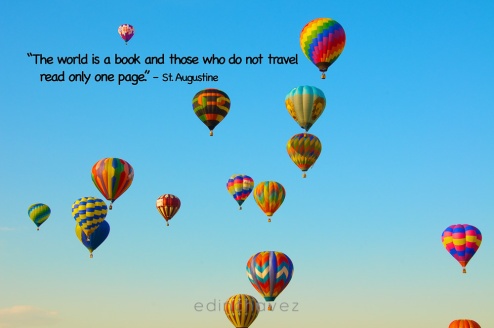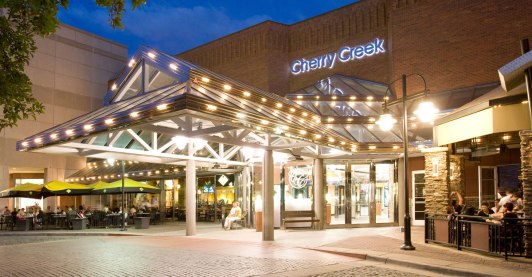Despite the dark nature of most of my fiction, my workdays are set in a bright, cheerful classroom where silliness, play, and education rule the atmosphere. When I graduated from college in 2009 with an English degree I had no clue what I intended to do, but through trial and error and good connections I ended up as a librarian, and then as an assistant teacher—each new school year revealing more about my personal development, as well as human nature in general.
The classroom is like a microcosm of society, where students are thrown together and forced to get along. These kids come from a variety of backgrounds and stages of development; some start out with unruly behaviors, some end the year that way, but there are none I wouldn’t step in front of a bus for. I love working with ECE (Early Childhood Education) because it’s the starting point where kids learn how to function as social emotional beings, to advocate for themselves and others, and to learn how to problem solve and work through issues with their peers (Or, as I’ll jokingly say, where we teach them to not be assholes). I take my work seriously, but as all teachers know, if you don’t stop and laugh at the absurdity of certain moments, you Will Go Insane.
So this is my ode to a day in the life of a preschool classroom and the situations that make me laugh out loud and wonder at the beauty of childhood.
Our day starts off with group yoga and breathing, and on every Friday we have a yoga dance party, when my co-teacher will play music, then pause and call out a yoga pose. So far this year my students’ favorite song is “Watch Me Whip/Nae Nae,” and yes, I know all the actions. I love starting my day this way, letting go of all cares, working up a good sweat, and learning new dance moves from some super-talented 4-year-olds, like B, who raps on the spot while hip hop dancing.
We have snack time and lunch in the classroom, and what we call Choice Time. One of the most popular Choice Time centers is Dramatic Play, where we had a pizza parlor set up complete with Garlic Knot boxes, felt pizzas and toppings, old credit cards and a cash register. The kids acted out who bought, made, and sold the pizzas, how to order, and they even constructed a delivery car out of kid-sized chairs and couches and a pie tin as the steering wheel. They had so much fun with this that we took them to The Garlic Knot on an excursion where they got to make real pizzas and test the staff’s patience with unceasing questions.
Other Choice Time options include Play-Doh, Legos, light table with Magna-Tiles (look them up, they’re awesome!), blocks and ramps, art studio, and science. No matter the materials and no matter the center, kids will always pretend that what they’re playing with is food (and that all food is anthropomorphic) and they’ll expect you to “eat” it while they stare you down to see that their ice cream sundae or donut or smoothie is the best thing you’ve ever fucking tasted.
One of my favorite times of day is when I read to the kids before naptime. This has led to making up our own “popcorn” stories (which are drastically lacking in plot), and to acting out a few of their favorite books. I love to see them play out the characters and exhibit their understanding of what they’ve internalized from the story. Two of this year’s favorites have been Big Pumpkin by Erica Silverman, and Mortimer by Robert Munsch.
There are things I especially appreciate about the teacher I work with this year. At the beginning of each school year she models for the kids how to give “Check-Ins.” If a student is upset or hurt, Ms. Sydney validates their feelings and teaches them the power of their own voice by encouraging them to ask for a check-in. Whomever is asked for a check-in then asks in return, “How can I help you feel better?” The upset child might say they need a hug or a high-five or an apology or that a certain offense never be made against them again. Witnessing this between students never fails to awe and amaze me, and I sincerely hope that they carry this skill into adulthood. We should all, no matter our age, be able to address our hurts with those who hurt us and to offer help to those in need.
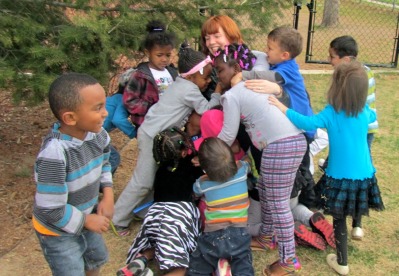
Teaching is a job of equal parts joy and pain—pain of living day to day with these kids like a family only to say goodbye every June, often to never see them again. To every student I’ve ever had: I love you and am grateful for the impact you’ve had on my life.
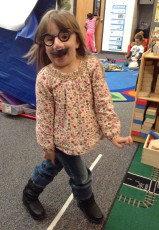 *A sketch of the student who stole a piece of my heart that I will never get back: Eccentric Madi with that instant light-up-your heart smile and crazy dinosaur hands and creeping feet, knees bent eyes wild, always building something new out of anything and telling stories about her pictures with horrified eyes, then off in her own world telling stories to herself full of life and expression; arms open elbows bent, “But, well, I…!” Always an excuse with wails and easy tears. God love that brilliant maniac child. If you ever come across this post someday, Moo Lou, know that I love you and will always be here for you.
*A sketch of the student who stole a piece of my heart that I will never get back: Eccentric Madi with that instant light-up-your heart smile and crazy dinosaur hands and creeping feet, knees bent eyes wild, always building something new out of anything and telling stories about her pictures with horrified eyes, then off in her own world telling stories to herself full of life and expression; arms open elbows bent, “But, well, I…!” Always an excuse with wails and easy tears. God love that brilliant maniac child. If you ever come across this post someday, Moo Lou, know that I love you and will always be here for you.
FAVORITE STORIES AND QUESTIONS:
B: Ms. Amanda, did you know that your heart can turn into a person?
Me: How does it live?
B: If you cry tears. You know how it dies?
Me: How does it die?
B: If you don’t cry, it dies.
***
A: One time, a monster pooped me out. (This was followed by an elaborate story of what it’s like to be swallowed by a monster)
A: …I was going so fast that I flew.
Me: How did you fly?
A: I have engines inside my body, that’s how I fly. I have to cut myself open and restart my engines.
Me: Doesn’t that hurt?
A: No, because I have a teddy bear, and my body’s made of metal, so it doesn’t hurt me. I have to drink gasoline, though.
Me: Isn’t that gross?
A: Not when you mix chocolate milk with it. (*Laughs)
***
Y looked up at me during lunch and asked, “Can you peel my grapes?” This same student would stick his foot out and point at his shoe, wordlessly demanding to have his shoe tied. We called him our Little Prince.
***
J: When things are dead can you still play with them? I mean, can you pay for a dog to come back to life as a pig or another animal?
J: Owls heads can turn all the way around just like my Barbie dolls.
***
S in Play-Doh: I’m going to make some love.
Me: How do you do that?
S: With a hot mold cutter.
Me: Sounds about right.
***
F in Legos: I don’t want to take my head off!
***
N: I listen to “I Believe I Can Fly” every day. It’s a sad song, it makes me cry!
***
A: My mom’s friend’s name is Easy.
FAVORITE OVERHEARD CONVERSATIONS:
E: Do you know what ‘pass gas’ is?
M: Ew, I don’t wanna go out with anybody that farts.
***
E: …And then he will scratch your face if you celebrate Halloween. You have to go up, up, up into the sky for the Devil to scratch your face. My whole family says that. He will hide behind my back when I sleep and scare me. Don’t tell your parents about the trick-or-treat song from music class or the Devil will come and scare you!
***
A: If you lie to God you go to the Devil.
B: I’m scared of God because every day he puts us down to the Devil. I’m scared to have a baby—I’d cut my baby up!
***
F (crying): She won’t let me be a mermaid and that makes me sad!
***
M: Are you scared of Chuck E. Cheese?
L: When I was a baby I was scared of him, but not when I was a kid.
***
E: What if the trees walked on two legs?
***
A to M: Will you be my best friend? Because Batman is Spiderman’s best friend.
***
F: Ms. Sydney, can I get out of bridge pose? My hair is turning into a monster.
THINGS MY CO-TEACHER AND I SAY:
“There’s no such thing as girl colors. Colors are for everybody.”
“Wait until you’re in the bathroom to pull down your pants.”
“Stop licking your cheese and eat it.”
“Do you need to poop? Go try sitting on the toilet for a little while.”
“Remember what we talked about, girls. Save your Pegasus play for outside.”
“Please don’t play with your muffin if you’re not going to eat it.”
NOT-SO-FAVORITE MOMENTS:
The time L threw up on her lunch tray my first week as an assistant teacher
The multiple times S wakes up wailing and frantically scratching after naptime
Shoe tying and retying, and retying again, and again and again…
Being coughed or sneezed on nearly everyday
The time T kicked and screamed and clung like a rabid monkey to the doorframe as I removed him from the classroom for hitting other kids
The time I cleaned up M’s poop all over the bathroom floor
The time I cleaned up J’s blood all over the bathroom sink and floor from a bloody nose that she wouldn’t stop picking at. I swear it looked like a crime scene.
The time A threw up on the Legos. My god, I was nauseous the rest of the morning.
FAVORITE MOMENTS:
Asking kids their dreams
Cloud-watching on the playground
Kids telling stories about their art
Girls singing songs from Disney’s Frozen at the top of their lungs while coloring or playing outside
When JC picked up a dead bird in the grass
The strange beauty of naptime, soothing kids to sleep with backrubs and noticing that first steady breath or jerk into dreams, their eyes moving rapidly beneath their lids (except for the two students I have this year who sleep with their eyes open!)
Daily high-fives, hugs, and compliments
Daily wholehearted laughter
